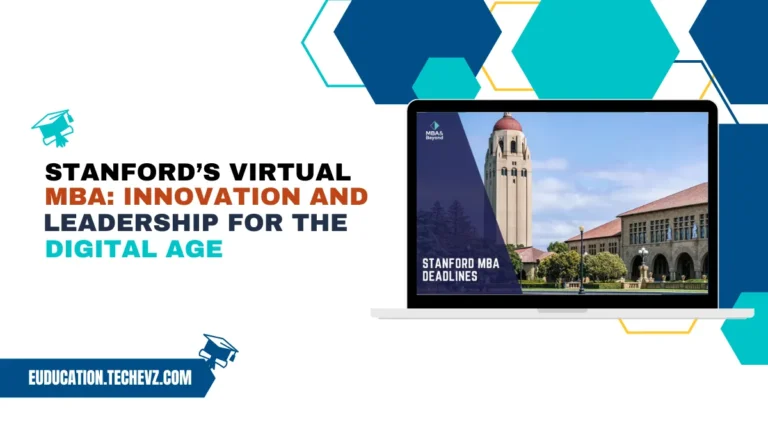Introduction
The decision to pursue an MBA is a pivotal step in advancing your career, but choosing the right specialization can be daunting. With the rise of digital transformation, Tech MBA programs have emerged as a compelling alternative to the Traditional MBA. But how do you decide which aligns with your aspirations? This article breaks down the curriculum, career trajectories, and key considerations to help you make an informed choice.
What is a Tech MBA?
A Tech MBA blends core business education with specialized coursework in technology and innovation. Designed for professionals targeting leadership roles in tech-driven industries, this program emphasizes skills like data analytics, product management, and emerging technologies.
Curriculum Highlights:
- Core Business Fundamentals (Finance, Marketing)
- Tech-Centric Courses: AI, Blockchain, Cybersecurity, Agile Project Management
- Hands-On Learning: Capstone projects with tech startups or Fortune 500 companies
Career Paths:
- Product Manager
- Chief Technology Officer (CTO)
- Tech Consultant
- Startup Founder
Ideal Candidate:
- Professionals with 2–5 years in tech roles (e.g., software engineering, IT).
- Aspiring leaders passionate about bridging business strategy and technological innovation.
What is a Traditional MBA?
A Traditional MBA offers a broad-based business education, covering foundational areas like finance, marketing, operations, and human resources. It’s ideal for those seeking versatility across industries or entrepreneurial ventures.
Curriculum Highlights:
- Core Subjects: Financial Accounting, Organizational Behavior, Strategic Management
- Electives: Customizable tracks (Healthcare, Finance, Entrepreneurship)
- Global Exposure: Case studies and internships across sectors
Career Paths:
- Investment Banker
- Marketing Director
- Management Consultant
- General Manager
Ideal Candidate:
- Early- to mid-career professionals seeking leadership roles in diverse sectors.
- Entrepreneurs building ventures outside the tech niche.
Tech MBA vs. Traditional MBA: Key Differences
| Factor | Tech MBA | Traditional MBA |
|---|---|---|
| Focus | Technology integration & innovation | General business leadership |
| Curriculum | 30–40% tech-focused courses | Broad core + flexible electives |
| Industry Alignment | Tech, SaaS, Startups | Finance, Consulting, Healthcare |
| ROI | High in tech hubs (e.g., Silicon Valley) | Versatile across industries |
| Networking | Tech entrepreneurs, engineers | Cross-industry leaders |
4 Factors to Help You Decide
- Career Vision:
- Choose a Tech MBA if targeting roles like Product Manager or CTO.
- Opt for a Traditional MBA if pursuing consulting, finance, or entrepreneurship.
- Industry Trends:
- Tech industries are booming (think AI, cybersecurity), favoring Tech MBA graduates.
- Traditional sectors like healthcare and finance still value broad business acumen.
- Skill Gaps:
- Strengthen technical expertise with a Tech MBA.
- Build holistic leadership skills via a Traditional MBA.
- ROI & Location:
- Tech MBAs often yield higher salaries in tech hubs.
- Traditional MBAs offer geographic flexibility.
Conclusion
Both Tech MBA programs and Traditional MBAs offer unique advantages. If you thrive in fast-paced tech environments and want to lead innovation, a Tech MBA could be your catalyst. Conversely, a Traditional MBA remains a powerhouse for those seeking versatility in industries like finance or global management. Assess your long-term goals, industry demand, and personal strengths to make the right investment.
Ready to take the next step? The Ultimate Guide to Balancing Work and an Online MBA in 2025







